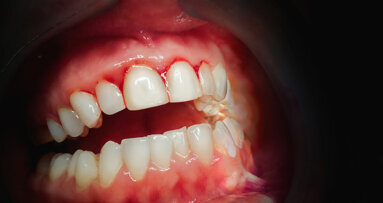DUNEDIN, New Zealand: In a new study researchers have found a connection between diets with high intakes of fibre and wholegrain foods and a reduction in the risk of some non-communicable diseases. Lead by scientists from the University of Otago, results of the study provide convincing evidence for replacing some refined grains with dietary fibre and wholegrain foods. The researchers are now looking more closely into the benefits high-fibre diets could have on oral health.
According to the researchers, just under 135 million person-years of data, from 185 prospective studies and 58 clinical trials, with a total of 4,635 adult participants, was collected for the study. From this collected data, the results showed that when comparing consumers with the highest dietary fibre diet with consumers with the lowest, a 15 to 30 per cent decrease in deaths and incidence of coronary heart disease, stroke, Type 2 diabetes and colorectal cancer were found.
Commenting on the results of the study, lead author of the study, Dr Andrew Reynolds from the Department of Medicine and the University’s Edgar Diabetes and Obesity Research Centre said that people should have at least 25 to 29 grams of fibre from foods daily, although, currently, most consume less than 20 grams per day.
Following on from his initial work, Reynolds is now running trials specifically focussing on oral health outcomes. Speaking to Dental Tribune International, Reynolds noted that there are only few studies on oral health pertaining to dietary fibre and wholegrain intake. “We are providing people with Type 2 diabetes wholegrain foods that are either based around intact wholegrains or finely milled wholegrains. The little evidence we have from cohorts and cross-sectional studies suggests that higher wholegrain intakes are good for oral health, but the mechanism is contested.”
Additionally, Reynolds and his team are now testing if it is the structure of the grain scraping down the tooth surface that might reduce plaque build-up, or if it is constituents of the bran layer of the grain that inhibits bacterial growth. With 16 of the 28 participants’ reviews completed, Reynolds believes the results from this series of research will most likely be ready at the end of this year.
The initial study, titled “Carbohydrate quality and human health: a series of systematic reviews and meta-analyses”, was published in The Lancet on 10 January 2019.
Tags:
PENNSYLVANIA, U.S.: Child obesity throughout the Western world is becoming more of a common problem. In a new study that may help our comprehension of the ...
STONY BROOK, N.Y., US: The applicability and efficacy of artificial intelligence (AI) within dentistry appears to be limitless. With each passing day, ...
BALI, Indonesia: Significant progress in the battle against HIV/Aids has been made in recent years, to the point that the Joint United Nations Programme on ...
CLEVELAND, U.S.: Obesity and periodontal disease remain the most common noncommunicable diseases in the U.S. A recent study has explored the effect of ...
OKAYAMA, Japan: In a recent study, researchers from Okayama University investigated whether involuntary masseter muscle activity showed any specific pattern...
AMSTERDAM, Netherlands: Ahead of the company’s participation at EuroPerio9, Philips Oral Healthcare recently hosted its 11th Global KOL Symposium in ...
SINGAPORE: The skin and teeth share ectodermal tissue origins, and a number of studies have demonstrated an association between atopic dermatitis and ...
DALLAS, US: An increased burden of cerebrovascular disease could be connected to a genetic predisposition for poor oral health, according to a new study ...
MADRID, Spain/PORTO ALEGRE, Brazil: Although researchers have previously investigated and analysed the relationship between periodontitis and obesity, ...
UMEÅ, Sweden: In the largest study of its kind, researchers from the Institute of Odontology at Umeå University in Sweden and the Bristol Dental School in...
Live webinar
Wed. 25 February 2026
11:00 am EST (New York)
Prof. Dr. Daniel Edelhoff
Live webinar
Wed. 25 February 2026
1:00 pm EST (New York)
Live webinar
Wed. 25 February 2026
8:00 pm EST (New York)
Live webinar
Tue. 3 March 2026
11:00 am EST (New York)
Dr. Omar Lugo Cirujano Maxilofacial
Live webinar
Tue. 3 March 2026
8:00 pm EST (New York)
Dr. Vasiliki Maseli DDS, MS, EdM
Live webinar
Wed. 4 March 2026
12:00 pm EST (New York)
Munther Sulieman LDS RCS (Eng) BDS (Lond) MSc PhD
Live webinar
Wed. 4 March 2026
1:00 pm EST (New York)



 Austria / Österreich
Austria / Österreich
 Bosnia and Herzegovina / Босна и Херцеговина
Bosnia and Herzegovina / Босна и Херцеговина
 Bulgaria / България
Bulgaria / България
 Croatia / Hrvatska
Croatia / Hrvatska
 Czech Republic & Slovakia / Česká republika & Slovensko
Czech Republic & Slovakia / Česká republika & Slovensko
 France / France
France / France
 Germany / Deutschland
Germany / Deutschland
 Greece / ΕΛΛΑΔΑ
Greece / ΕΛΛΑΔΑ
 Hungary / Hungary
Hungary / Hungary
 Italy / Italia
Italy / Italia
 Netherlands / Nederland
Netherlands / Nederland
 Nordic / Nordic
Nordic / Nordic
 Poland / Polska
Poland / Polska
 Portugal / Portugal
Portugal / Portugal
 Romania & Moldova / România & Moldova
Romania & Moldova / România & Moldova
 Slovenia / Slovenija
Slovenia / Slovenija
 Serbia & Montenegro / Србија и Црна Гора
Serbia & Montenegro / Србија и Црна Гора
 Spain / España
Spain / España
 Switzerland / Schweiz
Switzerland / Schweiz
 Turkey / Türkiye
Turkey / Türkiye
 UK & Ireland / UK & Ireland
UK & Ireland / UK & Ireland
 Brazil / Brasil
Brazil / Brasil
 Canada / Canada
Canada / Canada
 Latin America / Latinoamérica
Latin America / Latinoamérica
 USA / USA
USA / USA
 China / 中国
China / 中国
 India / भारत गणराज्य
India / भारत गणराज्य
 Pakistan / Pākistān
Pakistan / Pākistān
 Vietnam / Việt Nam
Vietnam / Việt Nam
 ASEAN / ASEAN
ASEAN / ASEAN
 Israel / מְדִינַת יִשְׂרָאֵל
Israel / מְדִינַת יִשְׂרָאֵל
 Algeria, Morocco & Tunisia / الجزائر والمغرب وتونس
Algeria, Morocco & Tunisia / الجزائر والمغرب وتونس
 Middle East / Middle East
Middle East / Middle East












































To post a reply please login or register